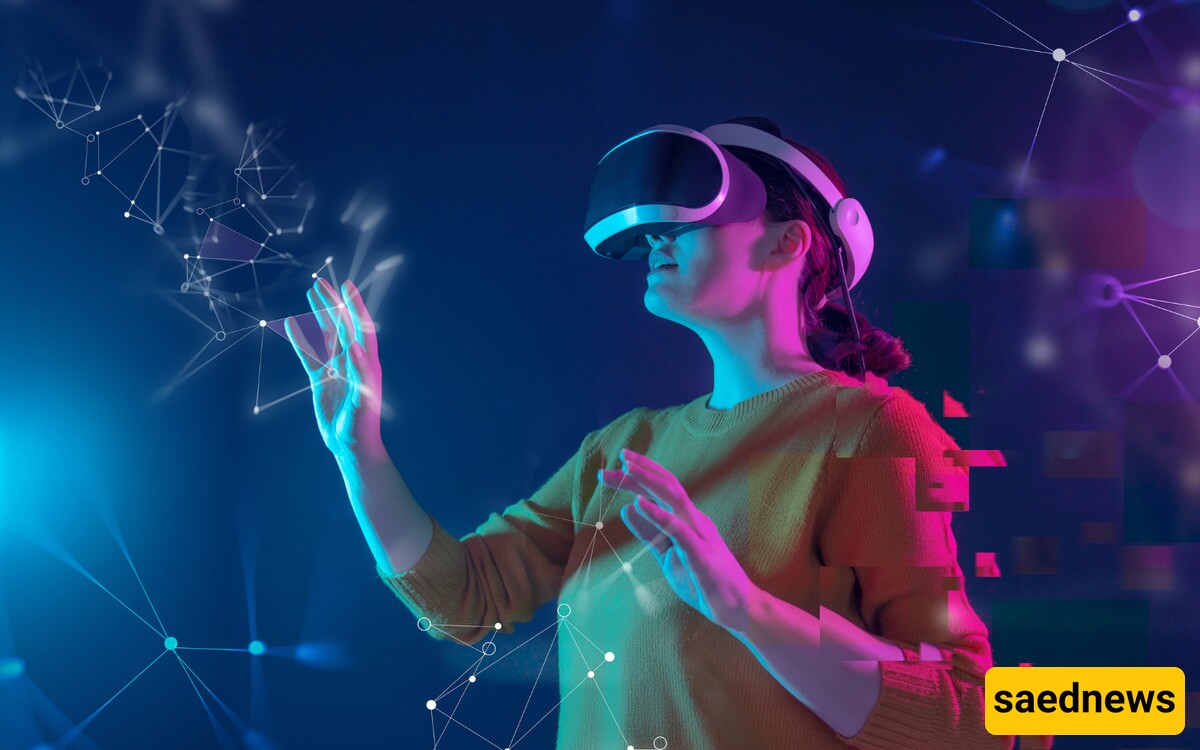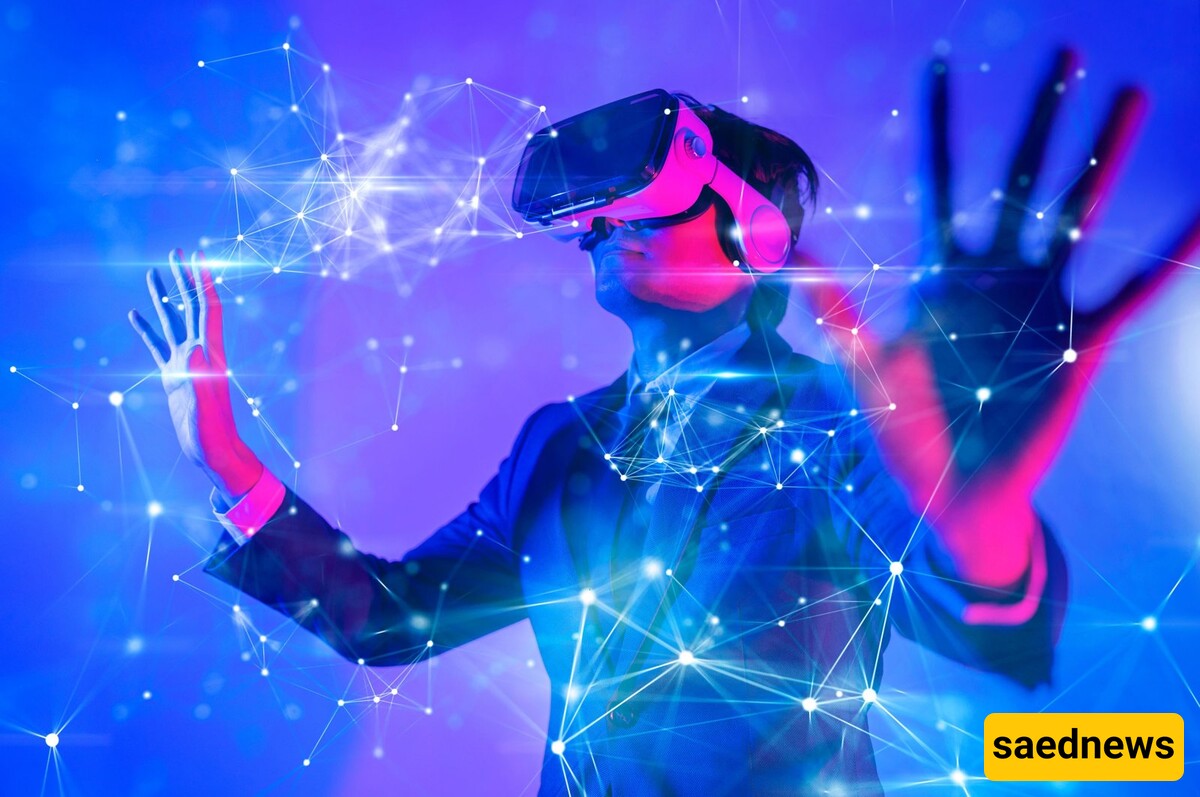SAEDNEWS: The metaverse is redefining how we interact, work, and entertain ourselves through immersive digital experiences. As technology advances, this virtual realm promises both opportunities and challenges for its widespread adoption.

According to SAEDNEWS, What once seemed like science fiction is now becoming a digital reality. The metaverse blends augmented reality (AR), virtual reality (VR), and blockchain to create immersive environments for work, play, and socializing. With significant investment from tech giants, the metaverse is shaping the future of online interaction.
![]()
The metaverse represents a shared, interactive virtual space that extends beyond conventional online platforms. Accessible through AR and VR, it enables users to engage as avatars in dynamic, persistent digital worlds.
Three critical technologies power the metaverse:
Virtual and Augmented Reality: Bringing immersive elements to life.
Blockchain: Ensuring secure ownership of digital assets.
High-Speed Connectivity: Facilitating seamless virtual experiences.
Virtual platforms such as Horizon Worlds and Decentraland provide spaces where users can interact, form communities, and share experiences in creative environments. Beyond socializing, the metaverse is revolutionizing how we work, offering virtual offices that foster collaboration in dynamic and engaging ways, far surpassing the limitations of traditional video calls. Similarly, the entertainment industry has embraced the metaverse, with games like Roblox and Fortnite showcasing its potential through open-world gameplay, live virtual events, and user-generated content. This innovation extends to cultural experiences, with virtual concerts and exhibitions becoming increasingly popular. In education, the metaverse is transforming learning through interactive classrooms and simulated training environments, making it possible to deliver immersive and practical lessons across various disciplines.
Technical Limitations
Building a fully functional metaverse requires advanced computing capabilities, reliable AI systems, and robust infrastructure to handle large-scale environments and real-time interaction.
Privacy and Security Risks
Virtual worlds collect extensive user data, making privacy protection and cybersecurity vital to gaining public trust. A lack of safeguards could hinder user adoption.
Access and Inclusion
Hardware costs, internet connectivity challenges, and technology gaps must be addressed to make the metaverse accessible to a global audience.
Governance and Regulation
Clear rules on virtual property rights, user behavior, and online accountability are necessary to manage and protect these spaces effectively.

The metaverse is ushering in new digital markets, from virtual goods and services to real estate, while simultaneously creating career opportunities in tech, design, and content creation. As haptic feedback devices, AI-driven avatars, and decentralized platforms advance, they promise to enhance the realism and functionality of these virtual spaces. Beyond economic and technological advancements, the metaverse holds the potential to revolutionize how we interact, learn, and even deliver healthcare. However, its growing influence also raises concerns about its impact on real-world relationships, mental health, and cultural norms, which must be thoughtfully addressed.
This transformative leap in digital interaction is poised to redefine industries and human connection on an unprecedented scale. As innovation pushes the boundaries of possibility, the metaverse is set to become a significant part of our daily lives, bringing with it profound ethical and societal considerations.

